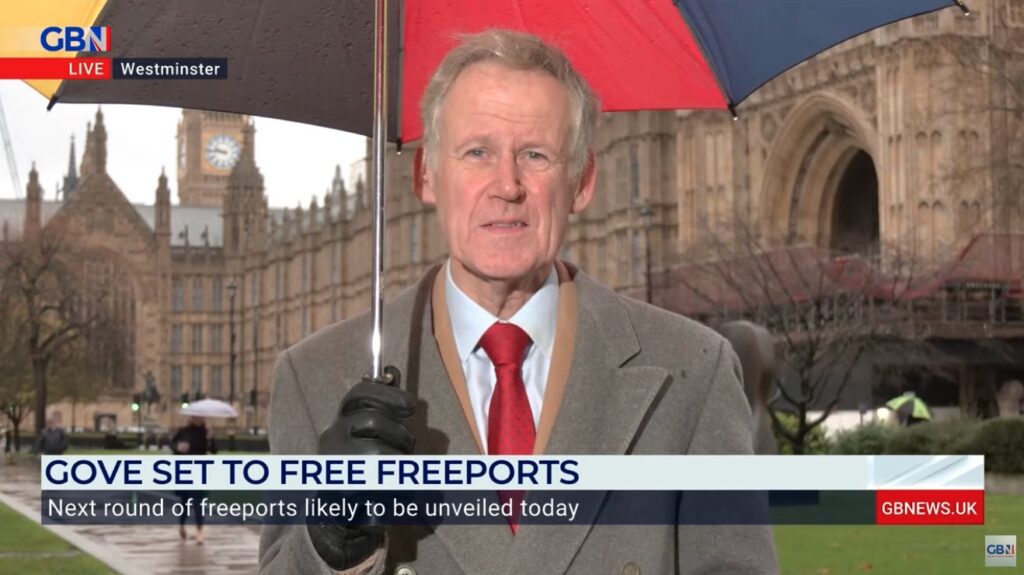Treasury has watered down Freeports policy, warns Adam Smith Institute

FREEPORTS in the UK may not work because the policy has been watered down by the Treasury, according to the Adam Smith Institute.
The Government today gave Freeports in Liverpool and East Anglia final approval which will see each get £25 million in seed funding.
But Adam Smith Institute director Dr Butler said the Treasury has been too involved in developing the policy and it may not work as a result because de-regulation for businesses based in Freeports has been dropped.
Commenting on a picture which showed Liz Truss and Rishi Sunak side by side at the first meeting of the Freeports Advisory Panel four years ago, he pointed out: “What you don’t see in that picture is about the 30-odd Treasury civil servants who were sitting at the back of the room.
“That’s when I thought this idea is not going to work, if the Treasury is too deeply involved, because the Treasury wants to keep every atom of revenue that it can and I think you’ve got to think differently in these things.
“Liz Truss was very much in favour of making it full fat.”
He said: “The current proposal, basically from the Treasury is that, yes, there might be a few reliefs on taxation, things like National Insurance, and business reliefs but there’s not going to be any de-regulation. That’s not part of it.
“I think that’s absolutely essential. What we need is a regulatory sandbox so that in these areas you can try different sorts of regulation and de-regulation.
“And this means you can see what works and you can see what brings in the trade and what doesn’t make much of a difference.”
Dr Butler told Tom Harwood: “A Freeport is an area usually next to an airport or a seaport where you can bring in goods.
“So you can bring in components, for example, you can assemble them into finished goods, you can pack them, you can label them, and then you can send them out again, without having to pay customs duty when you bring everything in.
“It’s like a little area that’s not really part of the country so that you can do your business there and then export again without facing any British customs charges.”
He added: “There are many of these Freeports around the world, there are many thousands in fact and we don’t really have any here at all: we had an earlier round which wasn’t terribly effective.
“But the idea is that these would act as a hub, where businesses could go and locate and do all this international trade without getting the hits of British customs and that would attract jobs and attract innovation and more prosperity in the region.
“In terms of levelling up, that’s part of the agenda.”




